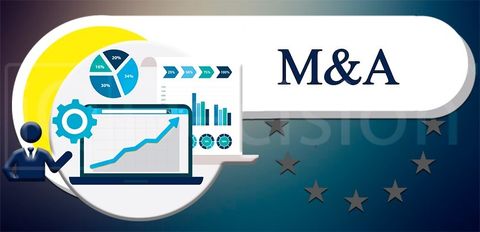If selling a business in Europe causes it to change its value, parties strive to share the risks by agreeing on a price adjustment mechanism. The two main mechanisms are:
- invoices in which the purchase price is determined based on a set of invoices drawn up prior to closing the deal;
- closed accounts in which the purchase price is determined based on invoices issued on a specific date.
Buyers are increasingly demanding the use of deferred remuneration mechanisms, such as payrolls. However, by agreeing to deferred remuneration, sellers shouldn’t take undue risks, especially if there’s concerns about buyers’ creditworthiness or liquidity.
DD of M&A Deals Amid the Coronavirus Pandemic
Prior to conducting an M&A transaction in Great Britain, buyers may request sellers to perform extended DD. Sellers are required to submit the due diligence report in such a way as to allay buyer's concerns regarding the acquisition of a UK company amid the coronavirus pandemic. If a company is going to be acquired through an auction with multiple buyers, a revision of the cost-benefit analysis is required.
Conducting an international M&A transaction may required obtaining the following information:
- financial & operational implications for a target business;
- any planned measures to eliminate the negative impact on the company's earnings & liquidity;
- concerns about solvency;
- any significant changes in a business plan & strategy;
- business continuity plans;
- IT infrastructure assessments.
Other information that may be required includes:
- procedure for holding meetings of shareholders & BoD members;
- compliance with credit rating changes & discussions with auditors on account closure on a going concern basis;
- force majeure & termination clauses & establishment of any current or probable default on contractual obligations;
- insurance against business disruptions & epidemics, as well as for key business personnel;
- impact on supply chain;
- measures taken to protect employees from dismissal, shortened working weeks, deferred payment of wages or bonuses, remote work,
- compliance with health & safety regulations, privacy & data protection, cybersecurity requirements;
- steps taken to protect against damage/unauthorized entry & rent;
- adherence to deadlines & compliance iwth liquidity, capital & prudential requirements.
Representations & Guarantees
Initiating an M&A transaction in Europe amid the coronavirus pandemic requires having comprehensive guarantees. Having guarantees enables parties to distribute risks, especially if they hold different positions during negotiations.
Information Disclosure
Sellers seek to disclose general information because:
- it’s impossible to determine the exact impact of the pandemic & government measures on all aspects of business;
- a rapidly evolving situation means that specific disclosures may be out of date at the time of signing an M&A agreement.
Warranties & Indemnification
Concluding an M&A deal in the EU involves enlisting the services of insurers. Among other things, the latter will be responsible for reducing the risk of underwriting. Some insurers are already making exceptions to their policies to cover losses arising from the COVID-19 pandemic. Working with insurers requires parties to pay special attention to DD of identified risks. Failure to engage insurers at an early stage may result in certain statements & warranties being excluded from coverage. In their turn, insurers must pay heed to assessment of "material adverse change" or "material unfavorable impact".
Commitments
In the period preceding the closing of an M&A deal in the EU, sellers must make commitments regarding the operation of a target business. In particular, they must ensure that it continues to operate as usual irrespective of the COVID-19 pandemic. To achieve this, parties should come up with a detailed description of all upcoming business transactions, paying particular attention to measures necessary to offset an impact of the COVID19 pandemic.
Access to Information
Buyers may require sellers to provide them with regular reports, including audited financial statements.
Permission
Given the ongoing coronavirus pandemic, obtaining permits for M&A deals in the EU may take longer than usual, especially if the relevant authorities aren’t fully functional. To tackle this challenge, many government agencies have expressed their willingness to extend deadlines or apply new interpretations to existing practices. For instance, the EU Commission has temporarily relaxed antitrust rules to allow pharmaceutical firms to allocate resources for production & distribution of medications.
Foreign Investment in Critical Sectors
EU countries are closely monitoring investments in certain sectors of the economy, especially in the pharmaceutical, biotechnology & research industries. Their regulatory authorities are paying particular attention to M&A transactions in the health sector, especially those of them that involve companies developing a vaccine. The German government has recently published a bill introducing stricter auditing standards for foreign investment & containing an expanded list of critical industries.
Force Majeure
If there’s a force majeure clause in a contract, buyers need to review its wording & determine the applicability of its provisions to the COVID-19 quarantine measures.
Looking for advice on structuring M&A deals amid the coronavirus pandemic? Please consider contacting IQ Decision UK.


















